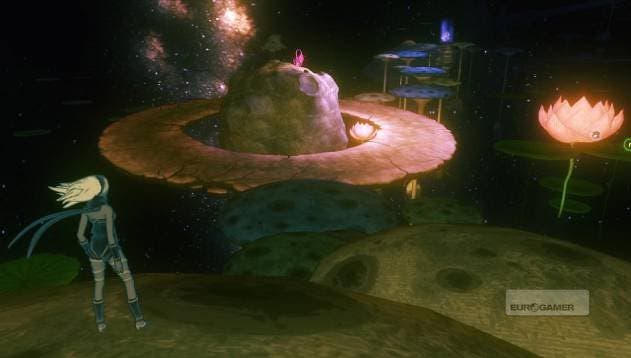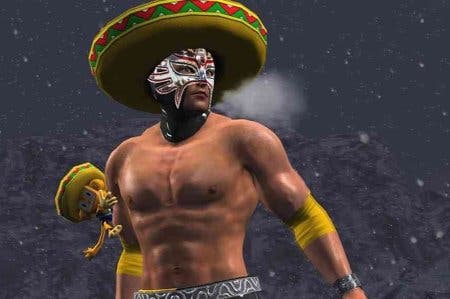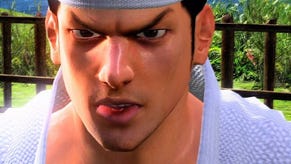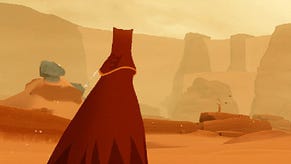Game of the Week: Virtua Fighter 5: Final Showdown
Kick, punch, you all remember.
Game of the Week is back, after a short, E3-imposed hiatus when we were a mite too busy looking at games of the future to remember the games of the present. Happily the last three weeks hasn't been as hectic a period of new releases as the same period last year, when the games business attempted to slip everything from Duke Nukem Forever to Child of Eden (via Dungeon Siege 3, Hunted, inFamous 2 and Alice: Madness Returns) past us while we weren't looking.
Nevertheless, there is a common theme, and it is Games That Marketing People Don't Know What to Do With. So they quietly brush them under E3's carpet of noise.
That's a little unfair to Game of Thrones; the release date of the role-playing tie-in was probably and quite reasonably intended to coincide with the end of the disappointingly unfocused second season of the TV show. Comparisons with HBO's hype juggernaut probably exposed developer French developer Cyanide to a harsher glare than it imagined when it signed the fantasy novels, well before HBO had turned them into a pop-cultural phenomenon.
It's not as slick as other big licensed games, then, but it's not as empty, either. "With all its inconsistencies, Game of Thrones reminds me of a less polished Alpha Protocol - another weird, buggy RPG that overcomes its flaws to some degree with fascinating narrative implementation and a world that actually seems to respond to your actions," wrote Steve Haske in our Game of Thrones review. "At about 20-25 hours, it's not long enough to really overstay its welcome, and in spite of my initially poor impressions of it, Game of Thrones ended up winning me over. It's a refreshing to see a small, scrappy developer take on a giant license like this, even if it's only by chance."

If Cyanide is guilty of anything, it's over-reaching - not an accusation you can level at Suda 51 and his Grasshopper Manufacture. Pumping out straight-to-video-style pulp thrillers as quickly and cheaply as possible seems like a good way to weather the storm in the console games business, and as Chris Donlan points out in our Lollipop Chainsaw review, Grasshopper manages to make its cheap production "feel like a true punk aesthetic". But is the Killer 7 studio coasting a bit?
"Despite the clever, if patchy, script and some great performances... there just isn't enough fun lurking in the combat to keep you entertained when a level goes on a bit longer than it should, when an extended joke or homage isn't quite witty enough to earn its keep, when the upgrade shop isn't filled with anything you'd really want to buy, and when the tone descends into damp sleaze," said Donlan. "Grasshopper's latest really is a bit of a lollipop: it's sugary, colourful, insubstantial - and perhaps a bit sickly with it."
It's a bit more worrying that Sony chose this period to sneak out two of its most substantial Vita releases to date - it's not as if it had much new to show for the struggling handheld at E3, either. True, Resistance: Burning Skies wasn't worth making a noise about, but you could hardly say the same of the brilliant Gravity Rush, a star launch game in Japan that could have done with a good push to compensate for its long delay in the West.
Donlan, who compared the quirky gravity-bending adventure to Jet Set Radio and Crackdown on its Japanese release, was just as smitten second time around. "This is largely about the thrill of zipping through the sky, spotting a distant building, and wondering what Sony's magpie artists have put up there for you to find," he wrote in our Gravity Rush review. "Kat may be a superhero, but it's telling that she spends a lot of her time behaving as a tourist. Hekseville's a great place for a holiday, in other words, and Gravity Rush makes for a wonderful return ticket. All aboard?"
Hopefully everyone with a Vita, at least, will consider it this week. And if you don't have one, there's another half-empty train to hop on.
Virtua Fighter 5: Final Showdown
Sega's downloadable version of the latest edition of its long-running fighting series was released to little fanfare last week. It's a smart way to package a fighting game in 2012, with plenty of cosmetic add-ons for sale but a low entry price. But the timing was poor - an area where VF5 has had rotten luck, with its initial assault on consoles coming just before Street Fighter 4 had cracked the online problem and reinvigorated the fighting scene.
That's a sad irony, because in-game, timing is Virtua Fighter's strong suit. It's the thinking man's fighter, a less showy, more tactical game where position and timing take precedence over complex input commands. Its reputation for inaccessibility is more down to its hardcore following than the game's fundamentals.
"It's an unfortunate truth that beyond the approachability of Virtua Fighter's fundamentals there's a rock-face to be climbed for players new to the series, and that they may be sent packing from a competitive online scene to an offline mode that's got very little to offer," wrote Martin in our Final Showdown review.
"A shame, as while the game demands dedication, it offers riches in return; there's an organic rhythm to its fighting that's tough to tame but that, in its depth and in its breadth, allows for a level of personal expression that's unique to the series. Virtua Fighter may no longer be at the cutting edge, but Final Showdown proves that it still runs deeper than any of its peers."
It's also, as Martin pointed out to me last week, the last true Sega game that Sega makes these days. The company's shifted emphasis onto digital releases is a smart move and may yet save it, but not if it lets fantastic games like this - as close as anything it's released in the last five years to the reason we all love it - fall on fallow ground.









